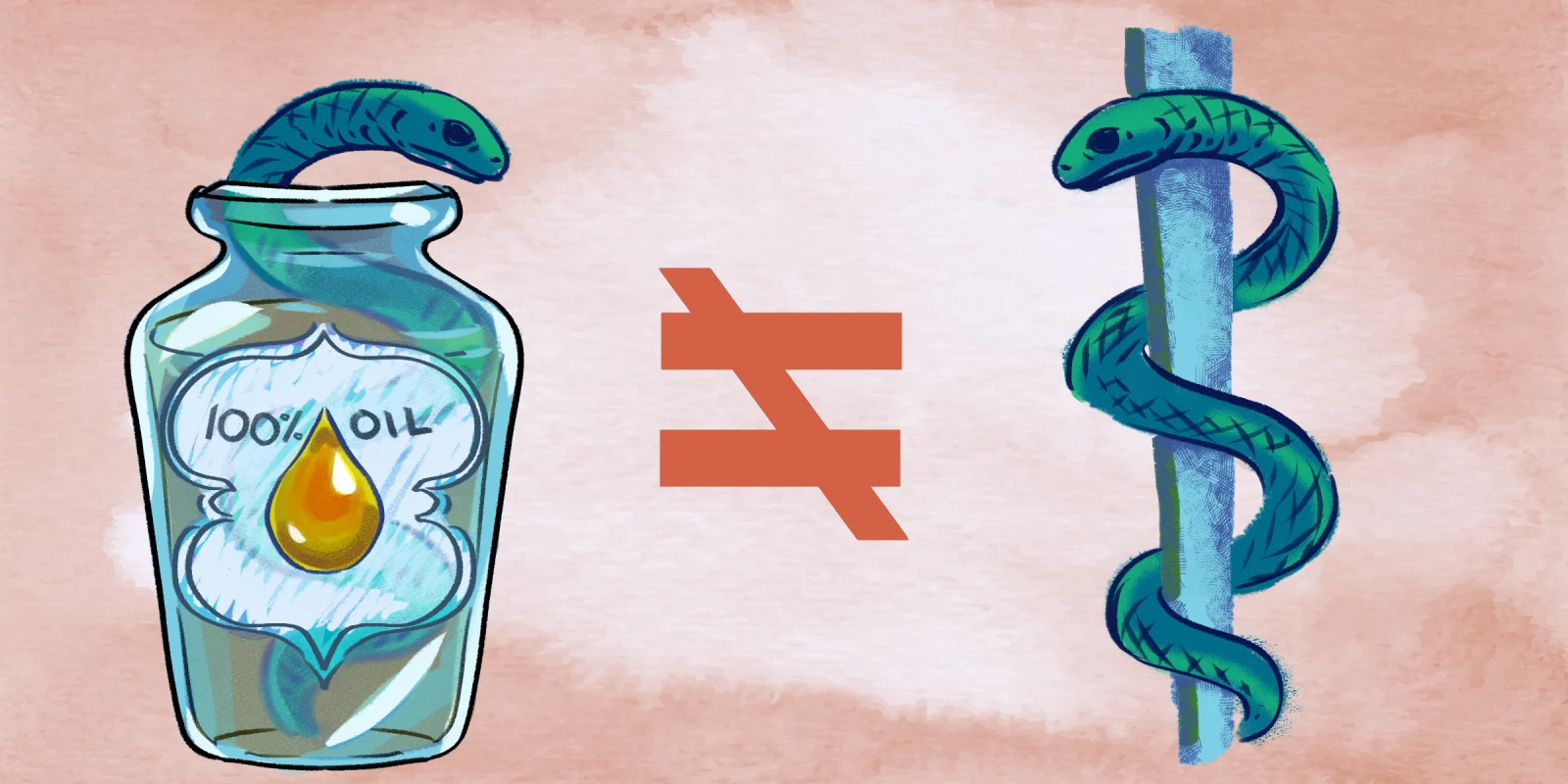As a urologist, I have heard my fair share of questions about all-natural remedies for everything, including the treatment of UTIs, cancer, and erectile dysfunction. If I had to guess, I spend at least 3-4 hours per week (which feels like 4-5 hours per day) trying to find respectful ways to answer the same question: “Is there an all-natural remedy that I can take for my medical problem? Is there a vitamin or a supplement that I can take to treat it?” While almost all patients can benefit from nutritional support, the truth is all-natural remedies seldom deliver what they promise. We have all seen patients who could benefit from behavioral modifications and while I agree that many patients can heal with minimal to no intervention, the discussion of health store interventions almost immediately makes me think of one of my favorite comedians, Dr. Jason Leong, who muses in his Netflix special, "There are no traditional equivalents to modern professions. If your home was burning down, would you call the traditional fireman who may tell you that your home is not burning but being cleansed?"
My gripe is not so much with the idea of supplements and all-natural remedies but with the public’s perception of it. The pandemic has rattled the public’s trust in medicine but even pre-COVID, there were patients requesting ineffective and, at times, dangerous, treatment for ailments that can be treated safely and effectively with medication.
So, what is it about supplements as a treatment that patients find alluring? At first glance, the price of treatment may be the primary barrier to care but the NIH estimates that Americans spend $30 billion a year on out-of-pocket and complementary health approaches. I see a number of patients who are willing to pay out-of-pocket for erectile dysfunction and libido support supplements like fenugreek. Many of the companies that produce these support the supplement’s claim to support testosterone health and increase vitality and passion. Usually, a patient will sample these expensive tablets but when they fail to treat the patient's underlying condition, the patient may continue to take them or leave them unfinished — but what I have never seen is a patient attempt to hold the company accountable for false claims. As I sit with the patient, I usually turn the bottle to the disclaimer on the back: Claims are based upon the collection of ingredients cited studies with notations combined with anecdotal testimonials. These statements have not been evaluated by the Food and Drug Administration and are not intended to diagnose, treat, cure, or prevent any disease. There is no guarantee of specific results and results can vary. Consult your health care professional before taking any dietary supplement.
Most of these supplements are taken without the guidance of a “professional” and not once have I had a patient request a pre- and post-treatment testosterone level. Somehow the company that plays commercials in the middle of the night on broadcast TV has usurped the trust that physicians once held, as well as shed all responsibility. Patients do continue to place their trust in modern medicine and according to the Pew Research Center, most Americans have positive overall views of medical doctors, and roughly half or more believe they can routinely count on medical doctors to do a good job, to show concern for patients' interests, and to provide fair and accurate information. But about half of Americans see professional misconduct as at least a moderately big problem, and many are skeptical that doctors are usually transparent about conflicts of interest.
Because I am often placed in the position of explaining why medications for the treatment of erectile dysfunction are often uncovered by prescription coverage plans — an issue that clinicians effectively have no control over — I believe that patients construe my recommendation to try a medication which will cost them money is an indication that I receive a kickback from the drug company. But I think it is important to inquire about what patients are willing to pay for natural remedies. Some pay more than $200 a month on vitamins and supplements, money they are happy to spend. Some argue that they like the all-natural cure component, but when I point out that fenugreek, in its natural state, does not grow out of the ground in pill form and that the process of manufacturing this pill is essentially producing a medication without oversight by the FDA, most will end the conversation.
What happens when the all-natural cure leads to a delay in care or even harm? While physicians are held accountable by a medical board and the threat of being accused of medical malpractice, these companies are protected by posting a disclaimer. Many patients with renal calculi or choledocholithiasis interested in supplements to prevent stone formation will trial chanca piedra. On websites, patients are eager to share pages and pages of testimonials that are easily visible, cast doubt on recommendations provided by physicians, and encourage patients with both gallbladder spasm and kidney-related pain to sample this all-natural cure.
I do wonder how we have come to a place where patients would rather take an unproven supplement over a prescribed medication. What is it about those little bottles from the health food store that makes people believe they are more effective than the little orange bottles from the pharmacy? Is it time for all-natural remedies to be held accountable for the outcomes?
What are your opinions on supplements? Share in the comments.
Alexandria Lynch is a general urologist with a focus on robotic surgery practicing in New York. She believes that practicing medicine is a privilege that can build a well-educated, healthier society, and encourage a just culture. As a native New Yorker, she enjoys long walks along the Westside highway admiring the Manhattan waterfront, thin-crust pizza, writing, flying, and endless afternoons at the Strand. Dr. Lynch is a 2021–2022 Doximity Op-Med Fellow.
Illustration by April Brust





